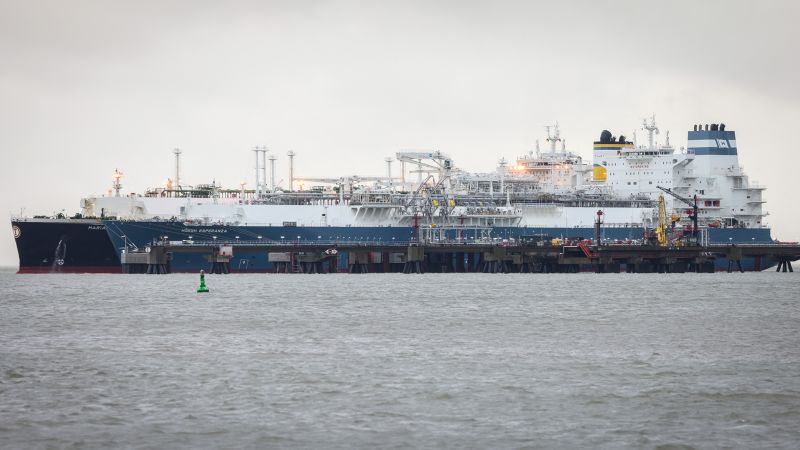World
Fortress Europe keeps cruelly raising its walls against the global south | Pia Klemp

In 2019 the city of Paris offered me the Grand Vermeil medal, an honor for bravery, to recognize work I’ve done as a captain in civilian search-and-rescue (SAR) operations to rescue people at risk of drowning while crossing the Mediterranean Sea.
I declined the award. I don’t see sea rescue as a humanitarian action, but as part of an anti-fascist fight, and I didn’t want to uphold hypocrisy. Paris is a city whose police steal blankets from people they force to live on the streets while suppressing protests and criminalizing people who defend the rights of migrants and asylum seekers.
The award committee wanted to honor me for my alleged “humanitarian work”. But that’s not what I’ve done. Humanitarian work solely aims to support people in life-threatening emergencies. It’s true; that’s part of what SAR does. But this is not the end of it. It is about challenging the system that creates this life-threatening, and all too often deadly, situation for people on the move.
The walls of Fortress Europe are constantly raised higher, the isolation increasingly brutal. People fleeing face almost insurmountable bureaucratic and physical hurdles. The European border protection agency Frontex is the central instrument of this isolationist policy, which stigmatizes people seeking protection as a threat to European security and treats them accordingly. Human rights violations along the EU’s internal and external borders are committed on a daily basis.
Safe and legal ways for people on the move to enter the EU are steadily diminishing, illegalized routes are growing more dangerous, criminalization of people seeking refuge and anyone that assists them is in full swing, externalization of European borders spreads deep into other continents, new racist agreements hostile to migration are adopted and existing deals consolidated. The aim is not to protect people fleeing but to protect the EU from people fleeing.
No other body of water is as seamlessly monitored as the Mediterranean, yet boats sink and people drown there almost every day. It is the deadliest border in the world. People are denied the right to life by the EU and its member states, whose deliberate policies are responsible for the mass grave in the Mediterranean. The EU has decided to militarize its borders instead of providing the resources required to save lives at sea. Relentless reinforcement of border police and calculated outsourcing of further border controls to foreign coast guards and militias mean tens of thousands of innocent people die at sea and in detention camps.
Fortress Europe does more than simply leaving people destitute and repelling them at its walls: Fortress Europe kills. None of this is accidental or simply unfortunate; these policies are systemic and systematic, and condone deaths. Since the EU knowingly and willingly accepts these deaths, this is clearly not a humanitarian issue but a political catastrophe.
It’s an unabashed attempt to maintain the existing power balance between the global north and south. In adopting this strategy, European states deliberately overlook their continuous colonial contributions to globally entrenched inequalities, relationships grounded in exploitation and other crisis-related processes. Without an ounce of shame, the EU’s motto – “United in diversity” – disguises an identity that is based on exclusion. Nation-state-territorial sovereignty, which seeks by force to prevent individual global freedom of movement, leads to the consolidation of privileges on the one hand and disadvantages on the other. In this spirit, the EU denies most migrants not “only” the right to mobility, but a fundamental right to exercise any rights.
SAR has put a spotlight on border violence and is in return exposed to enormous governmental pressure. Over the years SAR NGOs have limited themselves in their area of operations, filling ridiculous requirements to not lose their ships or get their crews dragged to court – potentially spending more time and thought on avoiding backlash than on efficient actions.
For that reason we need to be very careful to not let SAR become humanitarian work after all. The continuous repression as well as the growth and institutionalization of some NGOs lessen the political impact of operations, forcing them to be part of the scheme rather than combatting it. Nonetheless, SAR remains a strong and important symbol for the fight against Fortress Europe. And obviously it remains just and right to rescue people at sea.
But the movement must ask itself if this is enough. The risks we are facing are dwarfed by those of people on the move. We don’t deserve our inherited privileges nor did we chose them, but we can chose our fights. We need to learn from lost battles. We need to find new tactics, alliances and means to deepen ruptures and to seize opportunities.
Let’s be clear: the EU is waging an undeclared war against people on the move. It is a nationalist, racist, militarized, anti-democratic war. The days of the very obvious fascism in the first half of the last century may appear to be over, but we never got completely rid of it. It finds new ways and faces. In Europe there is/has to be a distinction between Hitler, Mussolini and Franco’s fascism and what we experience today, while at the same time it’s clearly connected. It’s what makes the “never again!” necessary.
And this is why it needs an anti-fascist response. Not to treat the symptoms of this war, but to stop it at its core. Search and Rescue must be Solidarity and Resistance.










